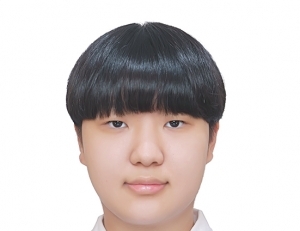It is not really strange to see foreign professors in Kyonggi University. Especially, the College English or major courses taught by foreign professors make them less strange. However, to talk with and share thoughts with these professors are not familiar things to do. Due to the language barrier and awkwardness, it is never easy to be courageous enough to have a conversation with them. Therefore, it is pretty obvious that there are not enough chances to hear what foreign professors think. They are not only valued faculty members of Kyonggi University, but also individuals who contribute to our university’s campus life. This means it is necessary to listen to their opinions. To find out what they think, the Pharos interviewed three foreign professors and will share their thoughts with you in this article.
Pharos:
Please introduce yourself.
Professor Hanson:
Hello everyone. I am Michael Jon Hanson, a professor in the Department of English Language and Literature. I specialize in teaching English writing.
Professor Mito:
Hello, I am Mito Kuraishi, a professor in the Department of Japanese Language and Literature.
Professor Herbermann:
Hello, I am Marc Herbermann. I was once a sociologist and journalist. Now I am a professor in the Department of German Language and Literature.
Pharos:
What do you think of Kyonggi University?
Professor Hanson:
I have been very satisfied with the school. Mostly, I am teaching in Building 4 and the General Lecture Building. I think the General Lecture Building has better facilities than Building 4. Building 4 reminds me of the “old-school style.” By the way, the hills are pretty tough.
Professor Mito:
I am satisfied with the facilities, but the old computers need to be replaced.
Professor Herbermann:
I like to work autonomously. On the other hand, since I am a foreigner and not fluent in speaking Korean, I do not feel included in the important decision-making of the school or other discussions. Otherwise, I am pleased with the teaching environment.
Pharos:
Is there any difficulty when teaching the classes?
Professor Hanson:
Well, I have taught here for around 7 years. When the number of students is over 40, it sometimes burdens me. Therefore, most times I teach classes of around 30 students. As each semester starts, students tend to be afraid of talking to me and are nervous. However, as time goes by, they get used to me. Thus, I don’t actually feel that there are any serious difficulties. Believe it or not, students here are writing in English pretty well.
Professor Mito:
The difficulty with the classes is that students don’t respond. Even after a class, students do not respond, so it’s the most difficult thing to determine if they understand the content of the class. Also, it was hard to prepare Japanese language classes in Korean when I first prepared for my classes.
Professor Herbermann:
When teaching a language, it is difficult to teach if there are too many students in one class. In particular, a speaking class requires individual or group-specific guidance, and if I help one group, it is easy for the other groups to become distracted. Also, if there is a big gap in the level of language skills in a class, it is difficult to proceed.
Pharos:
What is the thing you are most proud of?
Professor Hanson:
I am proud when I receive the work submitted by students at the end of the semester. When I see the results of efforts made by following the lectures well for one semester and skills that have actually improved, I feel proud as a professor.
Professor Mito:
I was most proud and happy when a student who first studied Hiragana and Katagana in my basic Japanese class contacted me about getting a job at a Japanese company.
Professor Herbermann:
When students are fond of learning and when they are thinking about a problem independently, I feel rewarded when they look at it from various perspective and think critically.
Pharos:
What do you want from your students?
Professor Hanson:
I hope they will work hard on the assignments that are given and attend the lecture with a good attitude. The results will all be positive for them. I understand that students are busy;
thus, I am thankful for the attitude of the students so far.
Professor Mito:
I hope that you guys find what you want to do in the university and experience a lot. Moreover, I hope it will be a meaningful time of studying with others instead of just thinking about grades.
Professor Herbermann:
I know that grades are important to students in this society, but I hope that we can discover areas of interest and develop self-directed learning skills. Let's not just look at the difficulties in the process, but try to think of progress as a challenge. Plus, I want you to know that German is the most widely spoken language in Europe next to English.
This interview showed that foreign professors are no different from Korean professors and they think alike. In particular, Korean students tend to avoid conversation because they think there will be difficulties in communicating with foreign professors because of the different languages. However, foreign professors also want feedback from their students and try to communicate smoothly. Therefore, why don't you open your mind and approach it instead of thinking it is too hard?
70th Reporter•CHOI SOYEON•clara3003@naver.com
71st Cub Reporter•PARK SINUI•dean0305@naver.com
 Freedom Given to Youth: An Opportunity for Choice or a Burden of Constraint?
“Are we truly free today?” Classical literature is far more than time-honored stories. It offers profound insights into human nature and society that transcend time, remaining a valuable resource for examining the challenges our world faces today. This article will draw on George Orwell’s 1984 and Charles Dickens’ Oliver Twist to explore the contemporary issues of youth housing and the emergence of a surveillance society ...
Freedom Given to Youth: An Opportunity for Choice or a Burden of Constraint?
“Are we truly free today?” Classical literature is far more than time-honored stories. It offers profound insights into human nature and society that transcend time, remaining a valuable resource for examining the challenges our world faces today. This article will draw on George Orwell’s 1984 and Charles Dickens’ Oliver Twist to explore the contemporary issues of youth housing and the emergence of a surveillance society ...

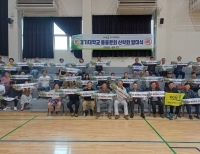 [단신] 산악회, 본교 동문의 버팀목이 될 수 있도록
[단신] 산악회, 본교 동문의 버팀목이 될 수 있도록
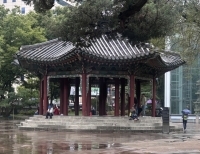 [사회메인] 노인 인구 1,000만 시대, 준비 없는 사회가 불안해
[사회메인] 노인 인구 1,000만 시대, 준비 없는 사회가 불안해
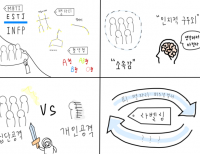 [네컷만화] 라벨링 문화
[네컷만화] 라벨링 문화
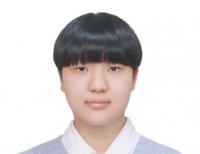 [진리터] 결국 우리 모두 돌아볼 것이니
[진리터] 결국 우리 모두 돌아볼 것이니

 목록
목록





